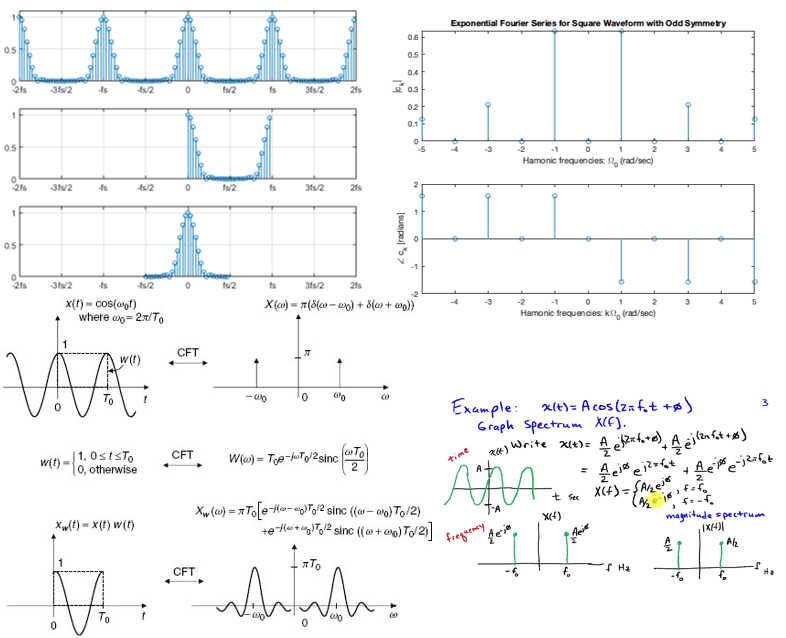Digital Signal Processing

Digital Signal Processing is known to be one of the most challenging modules in the CE Degree. It has many lab assignments and the content is very mathematical and complex. Having seen my friends struggle with this module before, I was well aware of the difficulty level beforehand. I had also asked my friends for some of their reference materials and notes hoping to use them while studying.
The first class was a tutorial session where the professor explained how the course would be taught. It was a very different method of teaching that I had never seen in any of the courses so far. The lectures would only be short Q&A sessions or past paper discussion sessions and the actual teaching would be done through recordings of previous years. Tutorials would also be used to discuss the lab assignments and the actual tutorials were to be done ourselves for revision. The first part of the course was done this way and the second part was done the traditional way, which most people preferred.
After getting used to the standard pattern of lectures, tutorials and labs, it was a little difficult to adjust to the new system where the lectures were only recordings where half of the lecture material was not even addressed. The order and content of the PowerPoint slides was also different considering they are updated every semester making it hard to follow the lectures. The content was also oversimplified in the explanation and overcomplicated in the slides making it hard to reconcile what I was hearing and reading.
Eventually, I had to resort to rewatching the same lecture 3-4 times and noting down different things every time. Then I would go through all the notes together and try to make sense of the topic. Watching YouTube videos to figure out what was going on also helped since most videos on YouTube provide visual and example-based explanations.
The topics covered in the first half were basics of signals and systems, Fourier Transformations in-depth and Z-Transforms along with Region of Conversion. I was able to pick up all the topics except Fourier Transforms which took almost the whole semester to make sense to me. The explanation from the recorded lectures was helpful in some sense but not enough to crystallise the concepts for me. I relied a lot on material from the internet to better understand the topic. Solving past exam papers and referring to the solutions discussed in the lectures also helped me understand how I need to approach the exam questions.
The second half of the course dealt with sampling and reconstruction, up and down sampling and Finite Impulse Response (FIR) filter properties and design. This part was taught in the standard way with lectures conducted live to explain the concepts and tutorials to clarify doubts and solve problems. The tutorials were extremely helpful in that they gave sample questions for the exam with the professor discussing the solutions.
Assessment was conducted through lab quizzes, a midterm quiz, tutorial quizzes and the final exam. The first two components were from the first half and the tutorial quizzes were conducted in the second half of the course. The midterm quiz was quite lengthy for the time given but was still doable. The lab assignments were take-home assignments where we had to complete writing a Python code before each lab and use it to answer a set of questions during the labs.
The final exam was relatively standard to prepare for since there were quite a few past papers to solve and practice using. There was also a single cheat sheet allowed into the exam where I noted down all the important formulae and approaches to be used for the questions. Although the pattern of our exam was different from past papers, I was prepared enough with the concepts by then to not get thrown off by the pattern and handled it well enough to achieve an A+ grade for the module.
A major takeaway from this module is the practice really is the way to go. There is no alternative to practicing something to get better at it. Even the hard questions from Fourier Transform seemed alright to me once I got the hang of it. I was proud to have been able to see the results of the hardwork I put in for this module while balancing two other assignment heavy modules and FYP. The group discussions with my peers also helped further understand certain topics and helping each other learn together was an excellent experience.
Keywords
- Z Transformations
- Fourier Transformations
- Signal Spectrums in Frequency Domain
- Sampling and Reconstruction
- Filter Design
- Python
- A+ Grade